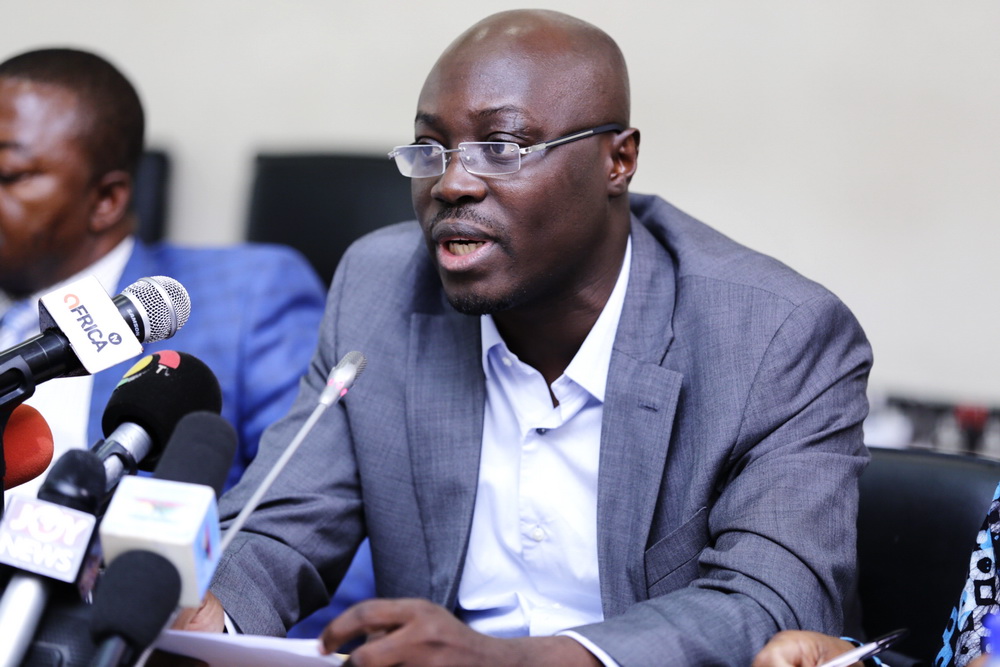
Budget 2018: Minority predicts gloom
The Minority in Parliament says the poor management of the economy and the increasing debt portfolio will send Ghana into recession, as experienced in 1983.
It said the government’s economic policy for 2018, which included austerity measures, would bring severe hardships to Ghanaians and revert the country to the Heavily Indebted Poor Countries (HIPC) status by 2019.
It again accused the government of failing to implement all its campaign promises, including the one-district, one-factory; one-village, one-dam; one-constituency, $1 million and the free senior high school (SHS) education policy.
Speaking at a roundtable breakfast discussion of the 2018 budget and economic policy in Accra on Monday, the Ranking Member on the Finance Committee and Minority Spokesperson on Finance, Mr Cassiel Ato Forson, said the public debt had increased from GH¢122.6 billion in January 2017 to GH¢138.6 billion as of June 2017.
He said due to recent developments, the debt was set to increase to GH¢150 billion by the end of December 2017.
The discussion, organised by the Minority in Parliament, was to review the 2017 budget and economic policy and reflect its expectation of the 2018 budget which the Minister of Finance, Mr Ken Ofori-Atta, is scheduled to present to Parliament tomorrow.
It was attended by representatives of civil society organisations, business executives and economic and planning experts.
Additional debts
Mr Forson said following the takeover of the UT and the Capital banks by the GCB Bank, the assuming bank would be receiving about GH¢2 billion worth of government bonds, an equivalent of one per cent of Gross Domestic Product (GDP), to balance its assets and liabilities.
"What this means is that the taxpayer — households and businesses — will be paying the GCB Bank an equivalent of GH¢2 billion for the collapse of the two banks. This amount will add to the existing public debt," he said.
Besides, he said, the recently failed Energy Bond on which GH¢177.2 million was "scandalously spent" was a public debt.
Mr Forson said the New Patriotic Party (NPP) government inherited a debt-to-GDP ratio of 72.5 per cent, with string buffers instituted by an Act of Parliament, and mentioned the Sinking Fund, with almost a balance of $400 million, as an example.
"Unfortunately, the state will be ending the year with a debt-to-GDP ratio of approximately 73.6 per cent. When the Energy Bond and the UT/Capital banks bond is added, the debt-to-GDP ratio will shoot up to 76.8 per cent," he said.
Revenue shortfall
He said huge gaps had emerged between the projected tax revenue and what was actually collected and indicated that a shortfall of GH¢3 billion in revenue was recorded in the third quarter of this year.
He said the revenue shortfall had severely compromised the government's ability to meet critical expenditure and commitments without heavy borrowing.
Expenditure
Mr Forson said the Minister of Finance had been silent on the NPP's promise to save the country GH¢3 billion annually from wasteful expenditure.
Rather, he said, the government had been engaged in "very wasteful and scandalous expenditure" and stressed that a case in point was the incredible GH¢177.2 million failed Energy Bond programme expenditure.
Growth
He said the boasting by the government to achieve 5.9 per cent GDP growth in 2017 and 8.9 per cent in 2018 could be misleading.
That, he said, was because the projected non-oil GDP growth of four per cent in 2017 was lower than the realised non-oil GDP growth of 4.8 per cent in 2016, while the projected non-oil GDP growth of five per cent in 2018 was only 0.2 per cent higher than the realised non-oil GDP growth in 2016.
"Thus, growth in the employment generating sector of the economy, the non-oil sector, is projected to decline in 2017 and improve marginally in 2018, relative to the realised growth in 2016," he said.
No job creation
Mr Forson said contrary to the President's assertion that jobs would be created in 2018, the Minority believed that the 2018 budget could not create jobs because of numerous reasons.
For instance, he said, the commercial banks did not have the needed liquidity to lend to the private sector; the government was implementing austerity measures, while the Central Bank had been mandated to pursue a tight monetary policy.
'Failed' promises
He said despite assurances, including one by the President that 51 factories under the one-district, one-factory policy would commence by November 2017, not a single factory had been built in any district in the country.
Again, he said, not a single dam was under construction under the one-village, one-dam policy.
He said the Planting for Food and Jobs programme appeared not to have yielded any tangible dividends, except a weak response to the devastating fall army worm attack.
He said as the year drew to a close, not a single dollar had been transferred to any constituency, in spite of the promise to release the $275 million to 275 constituencies under the $1 million per constituency policy.
Mr Forson said while the NPP manifesto promised to provide free SHS for all, only first-year students were admitted to the programme in September 2017, while more than 560,000 students in second and third year were excluded.
Electricity tariffs
The Minority Leader, Mr Haruna Iddrisu, said the President's assertion that the 2018 budget would announce a reduction in electricity tariffs was contestable.
He said it was the Public Utilities and Regulatory Commission (PURC) which was the legal entity responsible for reviewing utility tariffs, not the Minister of Finance.
